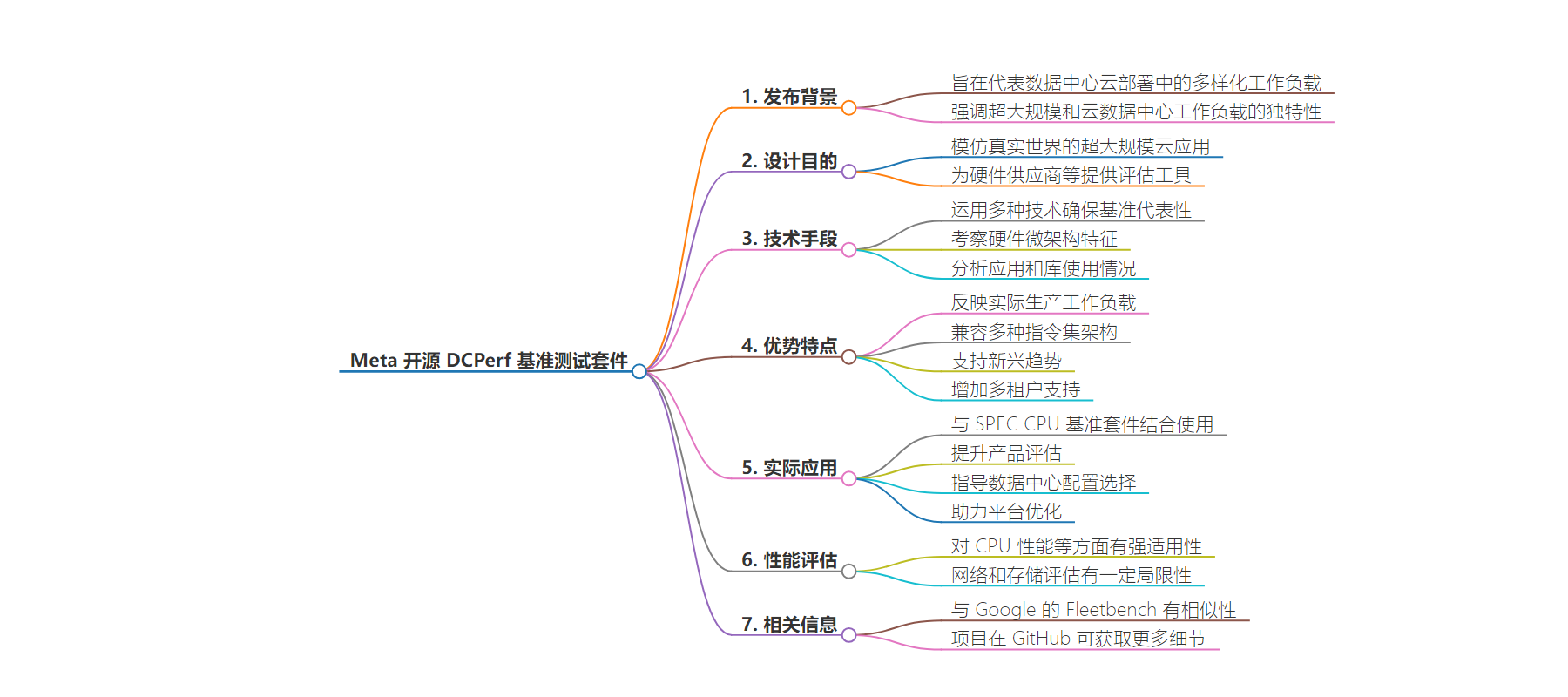包阅导读总结
1. 关键词:Meta、DCPerf、Hyperscale、Cloud Workloads、Benchmark Suite
2. 总结:Meta 开源了 DCPerf 基准测试套件,用于超大规模云工作负载。它能帮助研究人员等进行产品设计和评估,反映真实应用,团队采用多种技术确保代表性,与多种架构兼容,在内部使用效果良好,但在网络和存储评估上有局限。
3. 主要内容:
– Meta 发布 DCPerf 基准测试套件,代表数据中心云部署中的多样工作负载
– 强调超大规模和云数据中心工作负载的独特性,与 HPC 等不同,需要专门基准
– 设计旨在模拟真实世界的超大规模云应用
– 确保基准代表性的多种技术
– 从硬件微架构到应用和库使用分析
– 基准的作用和优势
– 帮助硬件和软件设计优化
– 与多种指令集架构兼容,支持新兴趋势和多租户
– 比传统基准更全面理解平台性能
– 内部使用及局限性
– 与 SPEC CPU 结合使用
– 对网络和存储评估有限,指出需进一步发展和注意结果解读的区域
思维导图:
文章来源:infoq.com
作者:Aditya Kulkarni
发布时间:2024/8/27 0:00
语言:英文
总字数:494字
预计阅读时间:2分钟
评分:85分
标签:超大规模云工作负载,基准测试,数据中心工程,Meta,开源
以下为原文内容
本内容来源于用户推荐转载,旨在分享知识与观点,如有侵权请联系删除 联系邮箱 media@ilingban.com
Meta has recently released DCPerf, aiming to provide a representation of the diverse workloads found in data center cloud deployments. This collection of benchmarks is expected to be a useful resource for researchers, hardware developers, and internet companies, helpingthe design and evaluation of future products.
In a blog post announcing the release,Abhishek Dhanotia,Wei Su,Carlos Torres,Shobhit Kanaujia andMaxim Naumov from Meta highlighted theunique nature of hyperscale and cloud datacenter workloads. They emphasized that these workloads, which dominate the server market, differ significantly from those in high performance computing (HPC) or traditional enterprise settings. This differentiation requires tailored server design and evaluation approaches, implying the need for specialized benchmarks.
DCPerf is a benchmark suite designed to mimic real-world hyperscale cloud applications, offering hardware vendors, system software developers and researchers a tool to evaluate new products and conduct performance projection and modeling. This approach reflects actual production workloads developed by internet application companies and deployed in hyperscale cloud datacenters.
The team at Meta employed various techniques to ensure benchmark representativeness, ranging from examining low-level hardware microarchitecture features to analyzing application and library usage profiles. This approach allowed them to capture the critical characteristics of production workloads and incorporate them into DCPerf.
By utilizing these benchmarks, the design and optimization of hardware and software on future server platforms will more directly translate into improved efficiency in hyperscaler production deployments.
/filters:no_upscale()/news/2024/08/meta-dcperf-benchmark-suite/en/resources/1DCPerf_image-1-1724732493280.png)
Source: DCPerf: An open source benchmark suite for hyperscale compute applications
Meta has ensured compatibility with various instruction set architectures (x86, ARM), validated benchmark effectiveness for emerging trends (e.g., chiplets), and added multi-tenancy support to leverage increasing core counts on modern servers.
When this announcement wasshared on Hacker News, the tech communitynoted its similarity to Fleetbench, a benchmarking suite tailored for Google’s workloads. Fleetbench’s C++ code is designed to aid chip vendors, compiler researchers, and others looking toimprove performance on workloads similar to those used by Google.
Meta has been utilizing DCPerf internally, alongside the SPEC CPU benchmark suite, to enhance product evaluations and guide configuration choices for their data centers. This approach enables early performance projections for capacity planning, aids in pinpointing performance issues in both hardware and software and fosters collaborative platform optimization with hardware partners.
DCPerf’scollection of application software provides a more comprehensive understanding of platform performance compared to conventional benchmarks like SPEC CPU. Recognizing these benefits, Meta has integrated DCPerf into their platform selection process for data center deployments.
DCPerf demonstrates strong applicability in evaluating and optimizing CPU performance, IPC, memory latency, and, to a certain extent, memory bandwidth and power. However, its usefulness for network and storage evaluations is more limited and dependent on the specific workload. The blog post highlights specific areas whereDCPerf might need further development or where users should exercise caution when interpreting results.
Meta has thanked its collaborators for their support and contributions in utilizing DCPerf. Interested readers can check out theproject on GitHub for more details.
